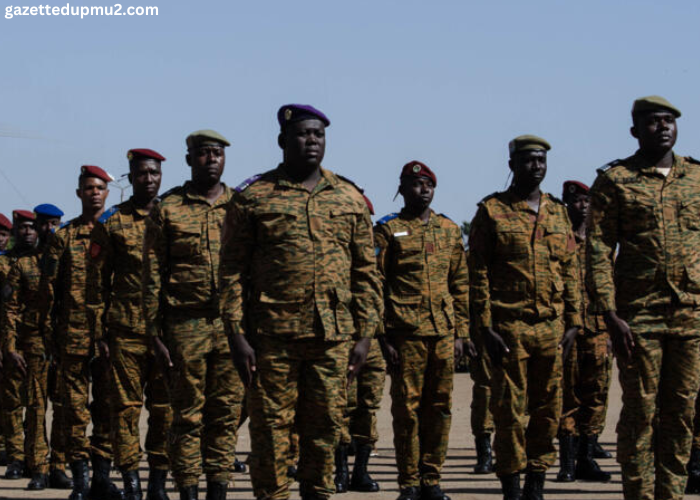Burkina Faso, a landlocked country in West Africa, is rich in history, culture, and political evolution. As of today, the country is experiencing a dynamic range of events that are shaping its present and future. This article provides an in-depth look at the current events in Burkina Faso, exploring key stories, political developments, economic trends, and social issues impacting the nation.
Political Landscape
Recent Political Developments
Burkina Faso’s political scene has been marked by significant changes and challenges in recent years. The country experienced a dramatic shift in 2014 with the ousting of long-time President Blaise Compaoré, which led to a period of transition and uncertainty. The current political climate is shaped by the aftermath of these changes, including recent coup d’états and their implications for governance and stability.
In recent months, there has been increased focus on political reforms and attempts to address security issues. The government is working on implementing policies to stabilize the country and address the concerns of various political factions. Efforts are being made to engage in dialogue with different groups to foster national unity and improve the political landscape.
Security and Governance Challenges
Burkina Faso has been grappling with security challenges, particularly from extremist groups operating in the Sahel region. The government’s response includes military actions and collaborations with international partners to combat terrorism and ensure the safety of its citizens.
In addition to security issues, there are ongoing discussions about governance and the need for institutional reforms. The government is focusing on strengthening its administrative capacity and improving transparency to build public trust and enhance the effectiveness of its institutions.
Economic Trends
Economic Performance
The economic performance of Burkina Faso has been influenced by various factors, including political instability, security concerns, and global economic trends. Despite these challenges, the country has shown resilience and continues to work towards economic development.
Key sectors such as agriculture, mining, and services play a vital role in the economy. Recent initiatives aim to boost agricultural productivity, attract investment in mining, and promote industrialization to diversify the economic base.
Development Projects and Investments
Burkina Faso is engaged in several development projects aimed at improving infrastructure and fostering economic growth. Investments in sectors such as transportation, energy, and education are crucial for supporting sustainable development and enhancing the quality of life for its citizens.
International organizations and development partners are actively involved in supporting these projects, providing funding and technical assistance to help the country achieve its development goals.
Social Issues
Health and Education
Health and education are critical areas of focus for Burkina Faso. The government is working to improve healthcare services and access to quality education across the country. Efforts are being made to address health challenges such as disease outbreaks and to expand educational opportunities for children and adults.
Recent initiatives include programs to enhance maternal and child health, combat malnutrition, and improve school infrastructure. These efforts are essential for building a healthier and more educated population, which is vital for the country’s long-term development.
Human Rights and Social Justice
Human rights and social justice issues are prominent in Burkina Faso. There are ongoing efforts to address challenges related to gender equality, child rights, and social inclusion. Advocacy groups and civil society organizations are actively working to promote human rights and ensure that marginalized communities have a voice in the national dialogue.
Recent discussions have focused on addressing gender-based violence, ensuring equal opportunities for women and children, and improving social protection systems. These efforts are crucial for fostering a more equitable and just society.
Cultural and Social Dynamics
Cultural Heritage and Identity
Burkina Faso is home to a rich cultural heritage and diverse ethnic communities. The country’s cultural identity is reflected in its traditional practices, languages, and festivals. Recent events highlight the importance of preserving cultural heritage and promoting cultural exchange.
Cultural festivals and events continue to play a significant role in celebrating the country’s traditions and fostering national pride. These cultural activities contribute to a sense of unity and help to promote Burkina Faso’s unique heritage on the global stage.
Social Movements and Public Engagement
Social movements and public engagement are increasingly shaping the discourse in Burkina Faso. Citizens are becoming more active in advocating for their rights and participating in the political process. Social media and other platforms are playing a key role in mobilizing public opinion and driving social change.
Recent social movements have focused on issues such as transparency, anti-corruption efforts, and youth empowerment. These movements reflect a growing desire for greater accountability and participation in the country’s development.
International Relations
Regional and Global Partnerships
Burkina Faso’s international relations are characterized by partnerships with regional and global actors. The country is actively involved in regional organizations such as the Economic Community of West African States (ECOWAS) and the African Union (AU). These partnerships play a crucial role in addressing regional challenges and promoting economic integration.
International cooperation is also important for Burkina Faso’s development efforts. The country receives support from various international organizations, donor countries, and development partners. These collaborations are essential for addressing pressing issues and achieving sustainable development goals.
Diplomatic Relations
Diplomatic relations with neighboring countries and global powers influence Burkina Faso’s foreign policy and development strategy. The country is engaged in diplomatic efforts to strengthen bilateral relations and address regional security concerns.
Recent diplomatic initiatives have focused on enhancing cooperation in areas such as security, trade, and development. These efforts aim to foster positive relationships and support Burkina Faso’s aspirations for growth and stability.
Conclusion
Burkina Faso today is a nation navigating a complex landscape of political, economic, and social challenges. The country is making strides in addressing these challenges and working towards a more stable and prosperous future. From political reforms and economic development to social justice and cultural preservation, Burkina Faso is actively shaping its path forward.
Understanding the current events in Burkina Faso provides valuable insights into the country’s ongoing efforts and aspirations. By staying informed about the latest developments, you can gain a deeper appreciation for Burkina Faso’s dynamic and evolving situation. As the country continues to navigate its journey, the collective efforts of its citizens, government, and international partners will play a crucial role in shaping its future.





